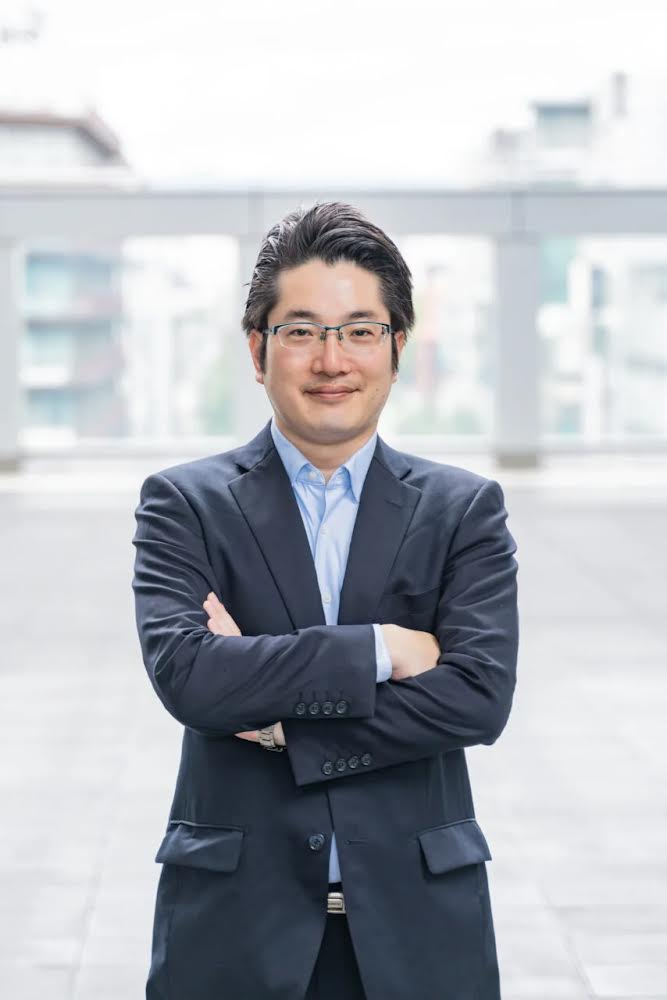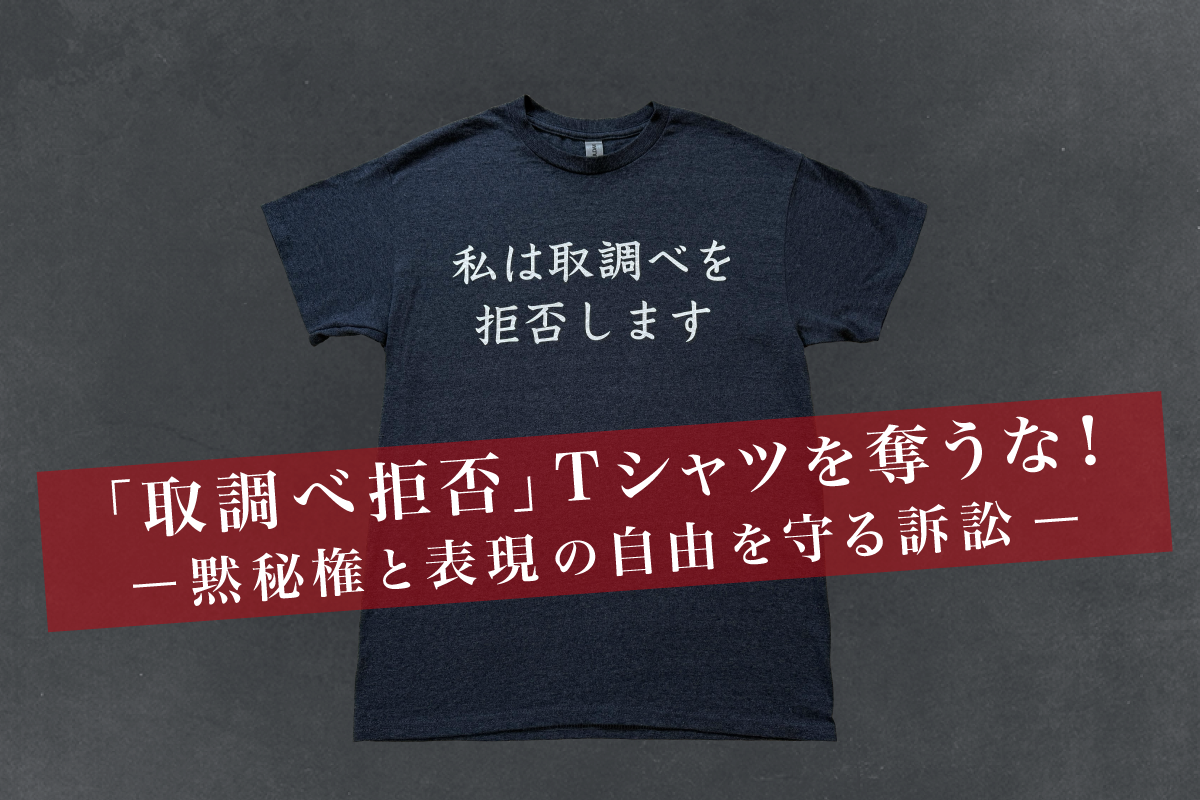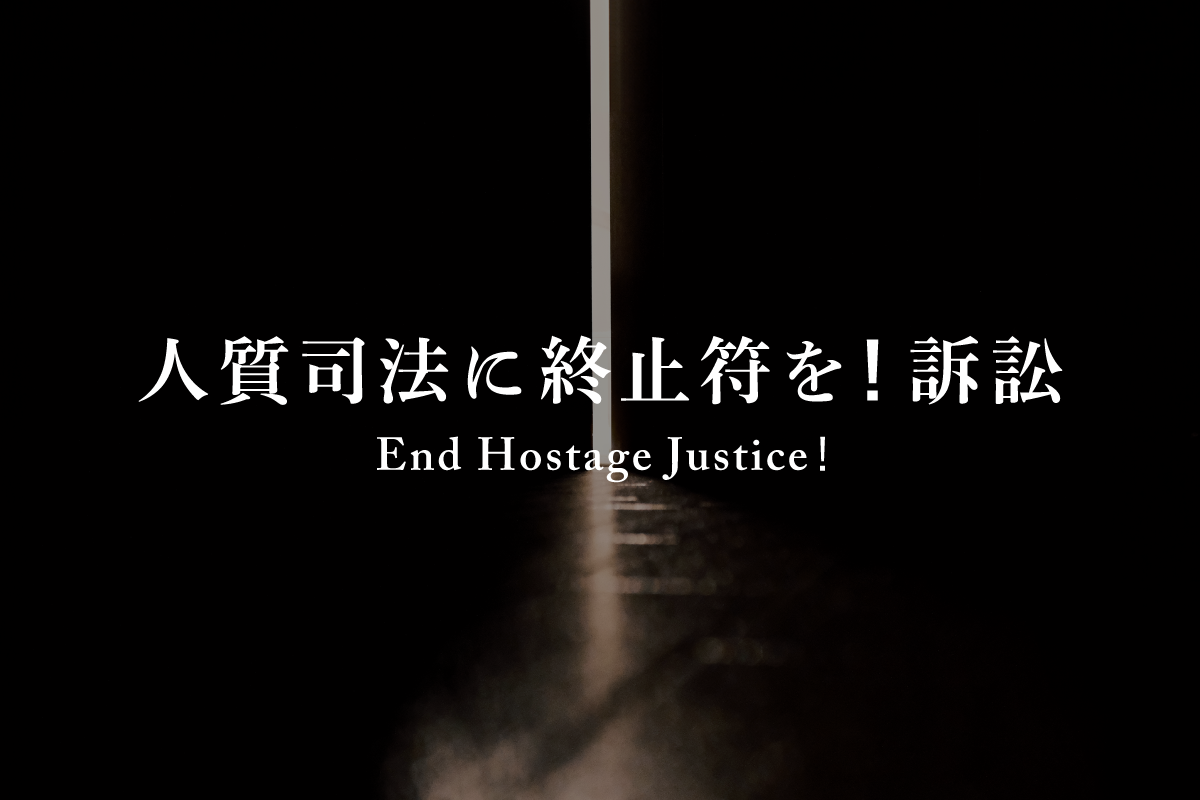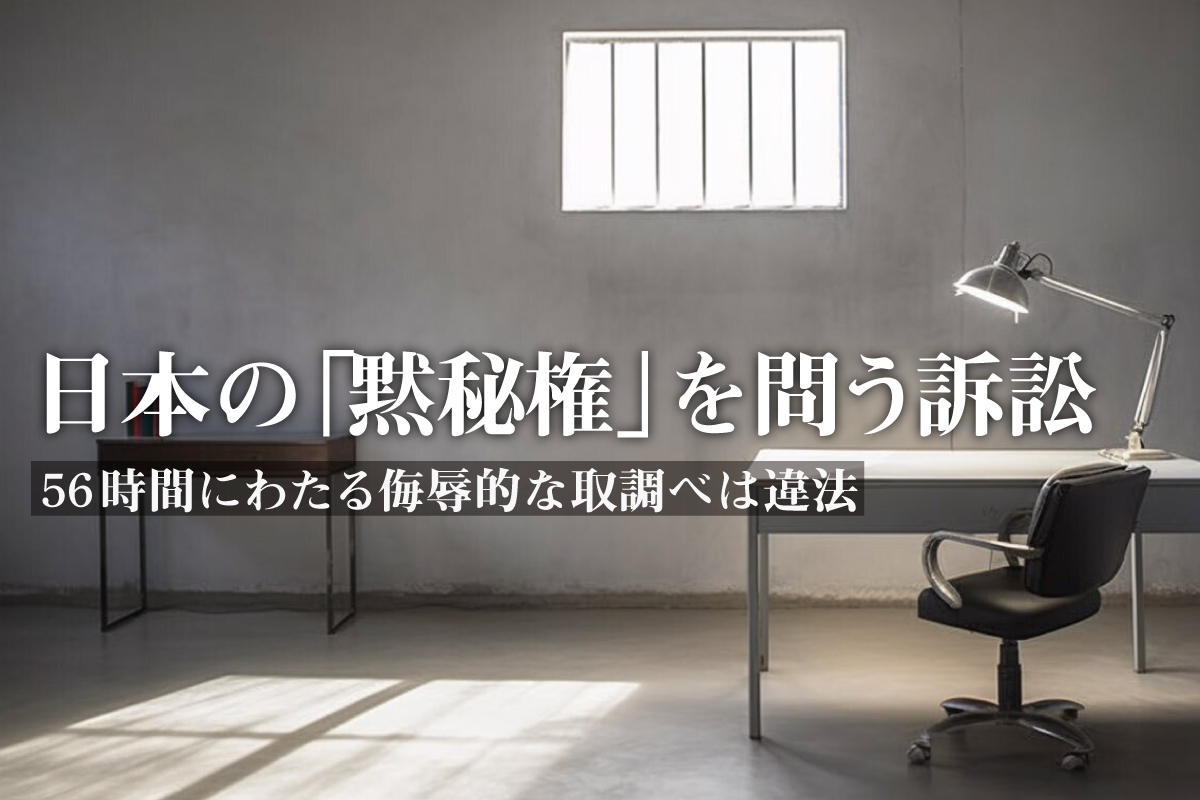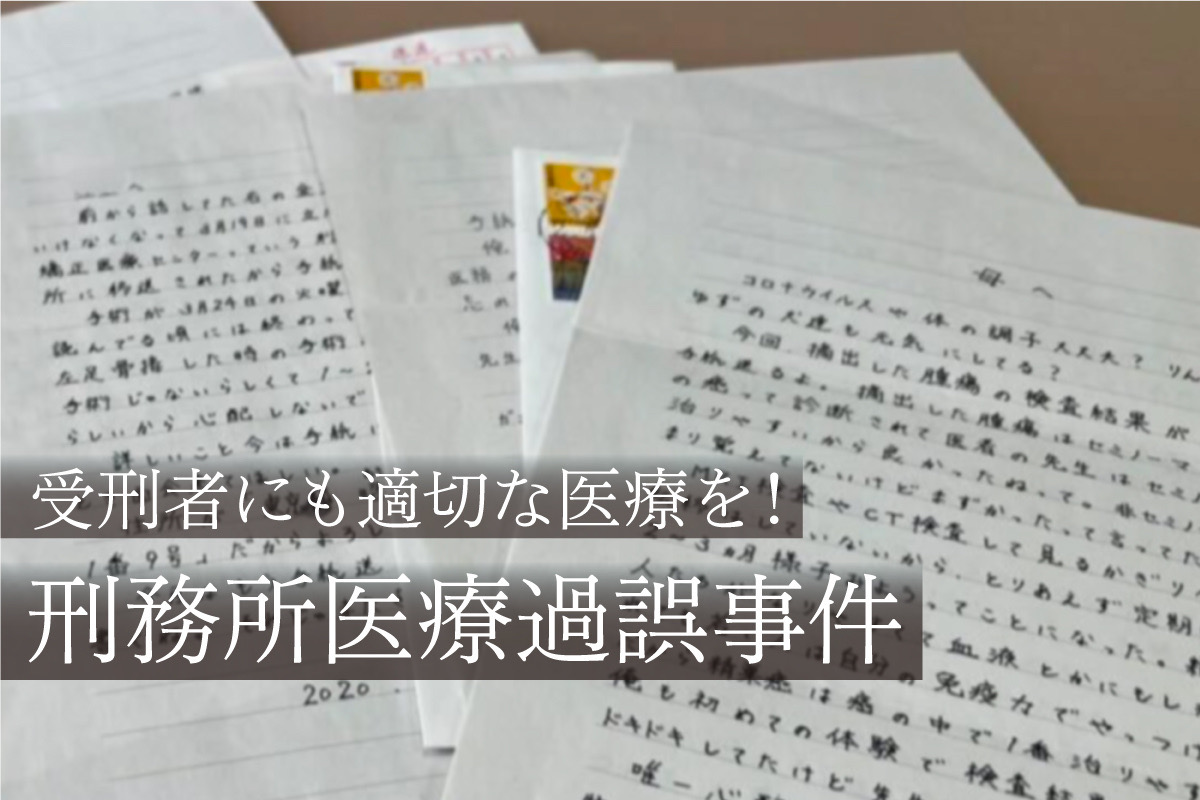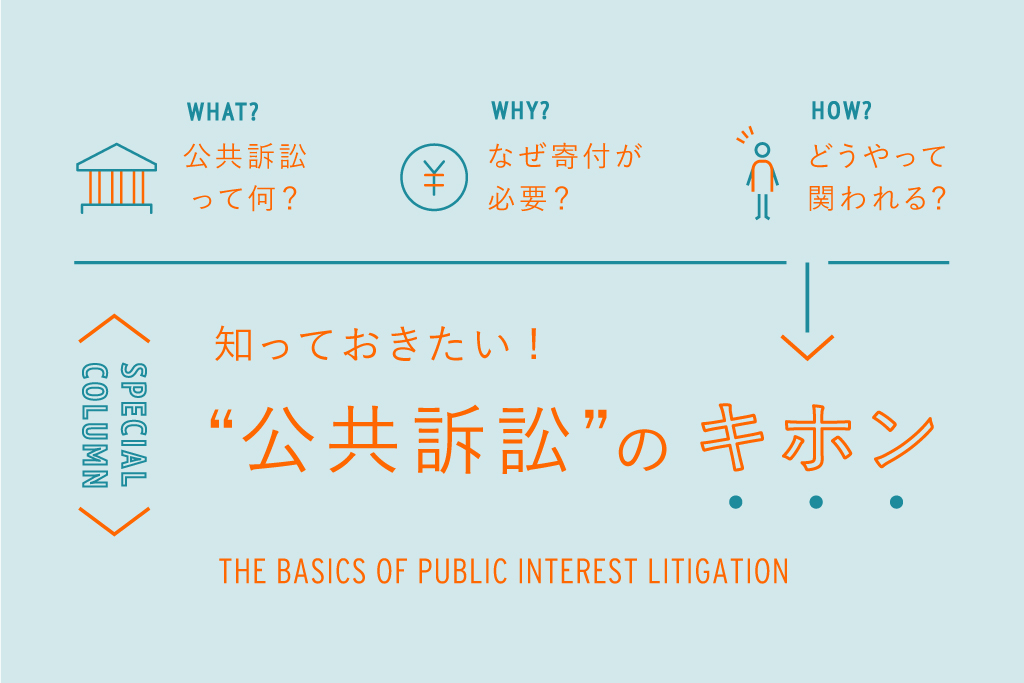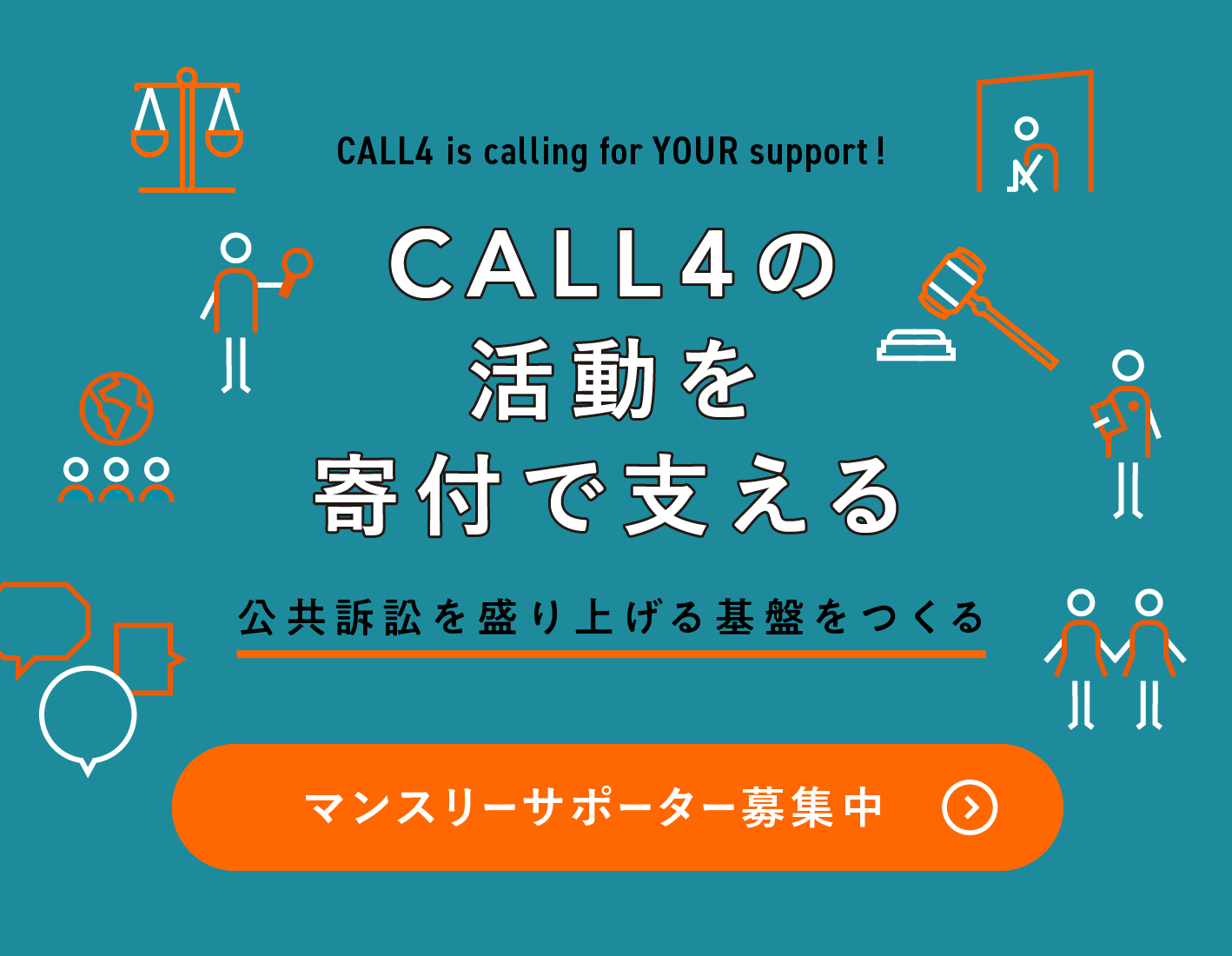おかゆ強制はおかしい!刑事施設における不要な食事制限の撤廃を求める裁判 Lawsuit to Eliminate Unnecessary Dietary Restrictions in Penal Institutions
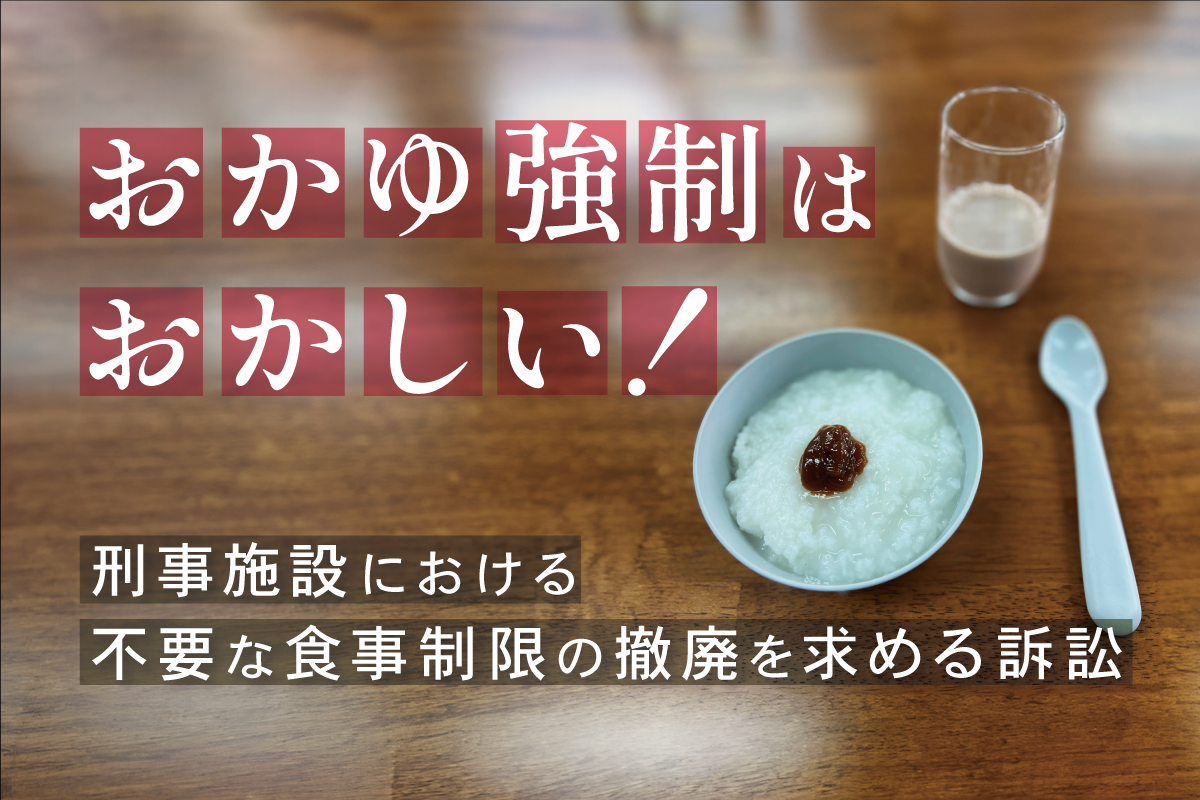
大阪拘置所では、胃腸に疾患がある収容されている人に「代替食」を提供します。「代替食」は、毎食の主食が粥食で、肉類や揚げ物などの固形物が一切なく、また汁物の調味料が通常の半分で極めて薄味なものです。Aさんは大阪拘置所に入るまでは普通の食事を食べることができていました。しかし、大阪拘置所では「代替食」を強制されています。この裁判は、Aさんが、普通の食事、普通の生活を取り戻そうとする裁判です。
At the Osaka Detention Center, detainees with gastrointestinal conditions are put on a restricted “alternative diet” that consists only of rice porridge as the main food and barely seasoned soup without any solid foods. In this case, though Mr. A has a gastrointestinal condition, he was able to eat regular meals before detention. However, he is now forced to adopt this “alternative diet.” This lawsuit represents Mr. A’s fight to regain access to a normal meals and a basic quality of life.
1 はじめに
皆さんは、毎食の主食でご飯を食べられず、お粥とどろどろのおかず、それもごく薄味のものしか食べられない、となったらどう思うでしょうか。
肉や魚を食べる代わりに、大豆の加工物を食べなければならない、となったらどうでしょうか。
揚げ物が一切食べられなくなったらどうでしょうか。
大阪拘置所では逆流性食道炎等の病気を持つ収容されている人に対し「代替食」が提供されます。
「代替食」は上に書いたような全部がどろどろでごく薄味の食事になります。
本訴訟の原告のAさんは、10年以上前から逆流性食道炎を患っています。
そうはいっても、大阪拘置所に入るまでは、普通の食事を食べることができていました。
大阪拘置所に入ってからは、Aさんが反対しているにもかかわらず、Aさんに対しては「代替食」が支給され続けています。
もう2年以上、Aさんは普通の食事を食べることができていません。
この訴訟は、Aさんに対し普通の食事を提供することを求める訴訟、ひいては、刑事施設内において、収容されている人々に人間らしい生活をさせることを求める訴訟です。
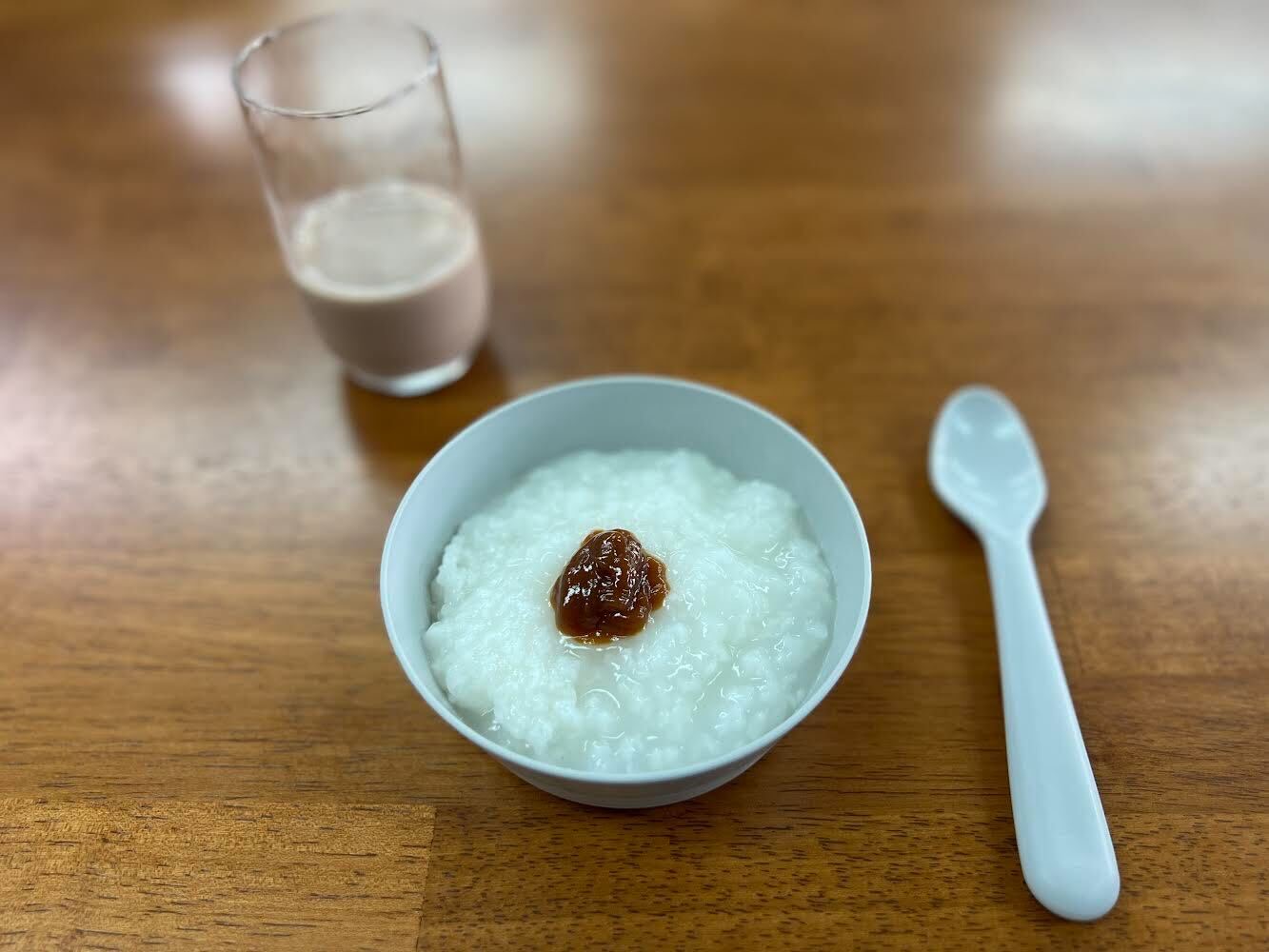
▲刑事施設の献立表およびAさんの話を元に再現した朝食。ほぼ毎日この献立が配膳される。
カフェ・オレは常食の半分の量で、お粥には味はなく、鯛味噌が乗せられるだけである。
2 事案の概要
Aさんは逆流性食道炎という病気を患っています。逆流性食道炎とは、胃の内容物(主に胃酸)が食道に逆流することにより、食道に炎症を起こす病気です。日本では、成人の10~20%がこの病気にかかっていると推定されています。治療としては、内服薬による治療と生活習慣の改善が必要となります。しかし、食事制限は必須ではありません。現に、Aさんは、大阪拘置所に移送されるまでは、薬を服用しながら、ラーメンやカツ丼等も食べることができていました。
しかし、大阪拘置所に移された際、Aさんは職員に「薬を処方するのであれば、代替食を食べてもらうしかない。」と言われてしまいました。Aさんは、最初は拒否しましたが、職員からなおも強く言われたので、やむなく「代替食」の支給に同意しました。しかし、「代替食」は、想像以上に味気なかったため、食欲がわかずAさんは「代替食」に手をつけることができませんでした。そのためAさんは、妻が差し入れてくれたり、自身で購入したパンでしのごうとしましたが、身長160cmのAさんの体重は、9か月で、57kgから、44kgまで見る見ると落ちていきました。
Aさんは、これまでに何度も、大阪拘置所に対して「外部では通常の食事を食べることができていたのだから、通常の食事にしてほしい」と申し入れました。しかし、大阪拘置所は、現在もなお、Aさんに通常の食事を支給しません。
そのため、Aさんは、裁判で、大阪拘置所がAさんに普通の食事を支給しないことが違法であることを、訴えることにしました。
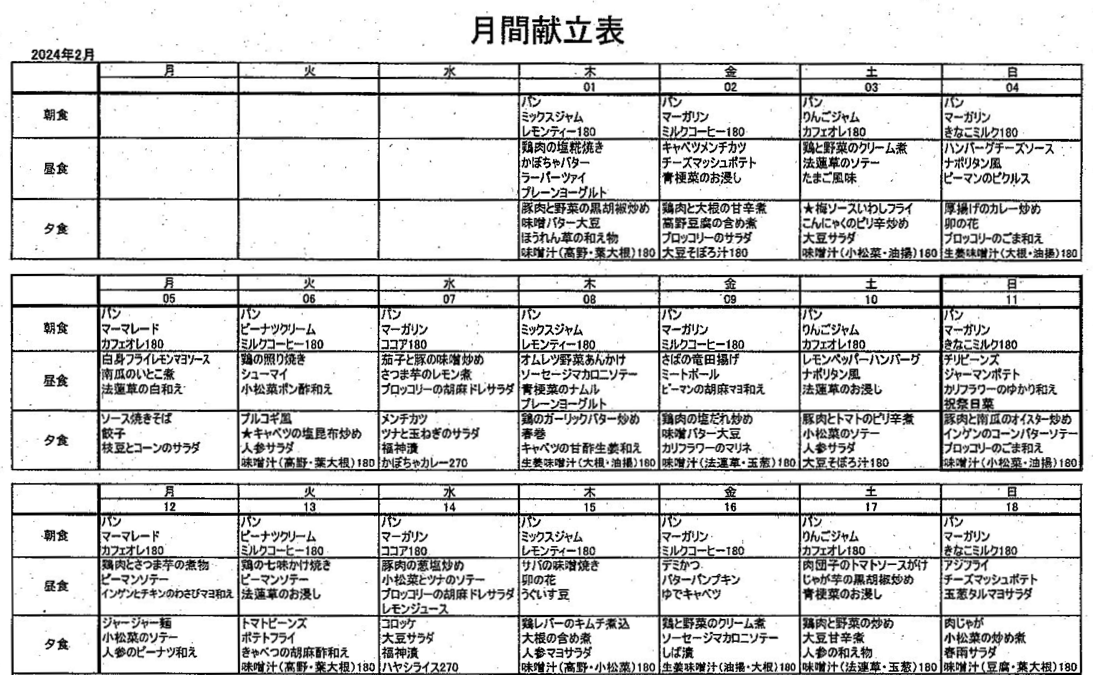
▲通常食の2024年2月の月間献立表(証拠書類甲第7号証より抜粋)
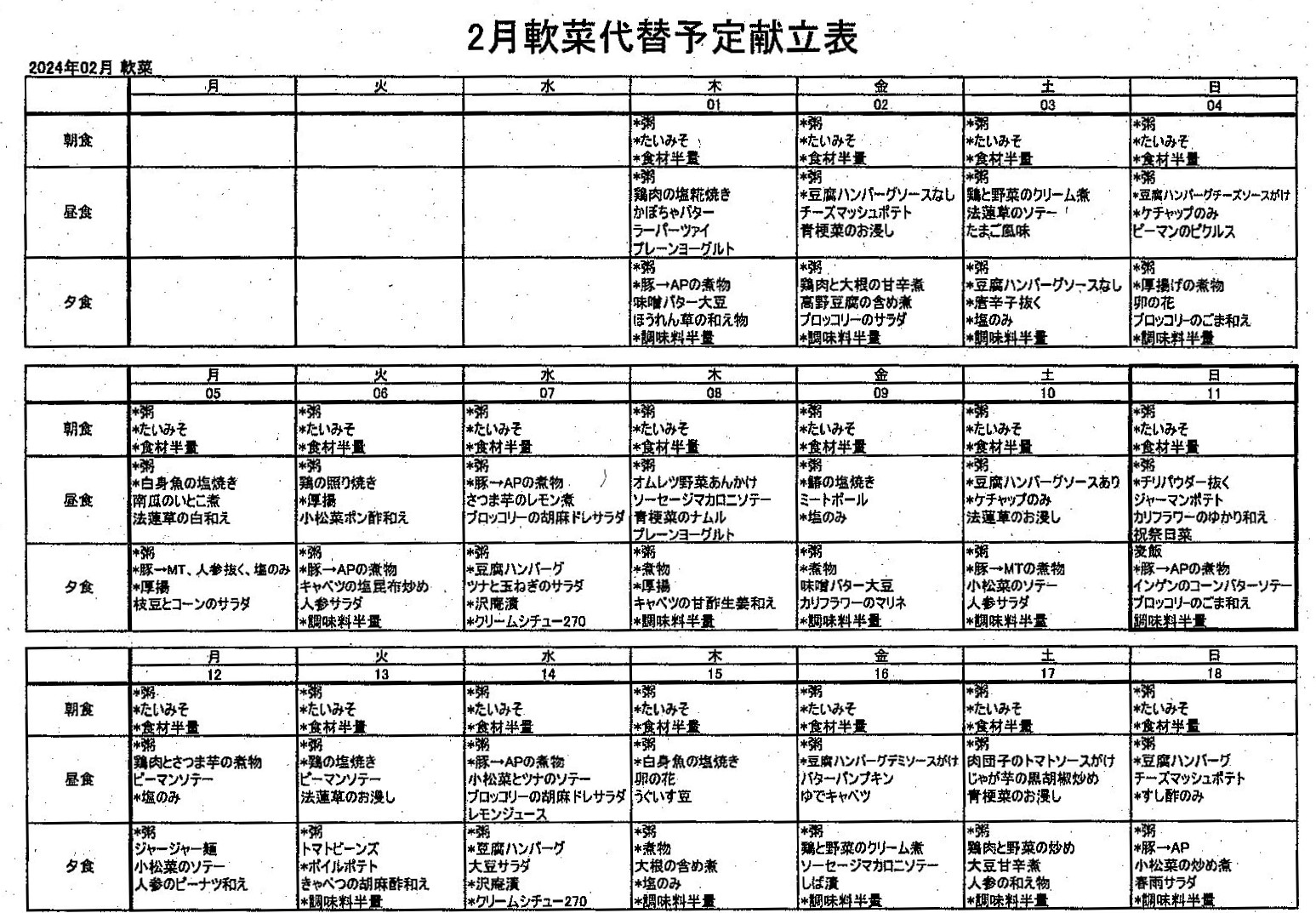
▲軟菜食の2024年2月の代替予定献立表(証拠書類甲第7号証より抜粋)
3 裁判の争点
本件の争点は概ね以下の通りです。
Aさんが、当初から代替食の提供に反対していたかどうか
なお、カルテ上、遅くとも大阪拘置所に移ってから3ヶ月後には、Aさんは代替食に対して拒否する意向を示しており、この点については争いはありません。
提供する食事の内容に、大阪拘置所の裁量がどれだけ認められるか
刑事施設に関する訴訟では、しばしば、刑事施設に広い裁量が認められがちです。
本訴訟でも国側は、刑事施設内の医療では広い裁量が認められ、今回提供された代替食もその裁量の範囲内であると主張します。
私たちは、食事は生活の根幹に関わるものであり、広い裁量を認めることは不適切であると考えています。また、仮に裁量が認められるとしても、拒否しているAさんに粥食を強要している点等を踏まえると裁量を逸脱していると考えます。
4 社会的意義
刑事施設に関する訴訟では、しばしば刑事施設に広い裁量が認められがちです。簡単にいえば、裁判所は「刑事施設長が専門的に判断したのだから、その判断を尊重しよう」として、刑事施設の行いを適法であると判断しがちなのです。
しかし、食事という、生活の根幹に関わることについて、刑事施設に収容されている人の尊厳を無視することが、許容されていいのでしょうか。たしかに刑事施設に収容されている以上、一定の制限はやむを得ないかもしれません。けれども、必要もなく、普通の食事すら取ることができないというのは過剰な制限ではないでしょうか。Aさんのように、食事について不当な制限を受けている方は全国の刑事施設にいるものと思われますし、また、食事に限らず、生活において不当な制限を受けている方も、全国の刑事施設に少なくない数いると思われます。
この訴訟は、刑事施設内であっても、人間らしい生活が保障されるべきだという、当然であるはずのことを、食事という面を通して明らかにしていく訴訟です。
5 資金の使途
- 専門家報酬(法学者の意見書、また状況によっては消化器内科医の意見書が必要になると考えています。) 合計40万円
- 弁護士報酬 50万円
- 実費(本人や専門家との面談の際の交通費、郵便切手代等) 10万円
6 原告の思い
代替食の強制は、医療に関わる問題です。適切な医療が受け入れられない中で裁判を受けなければならないのはおかしいことだと思います。冤罪で苦しんでいる私に対し、代替食を強制され続ければ、心が折れてしまいます。そのため、代替食の強制は、防御権に関わる問題であるといえます。他の収容者にも、代替食に限らず、医療上の問題は存在するのではないかと考えています。そして、医療上の問題が生じている理由は、拘置所内の状況が外から見えないためであると思います。拘置所内の問題を明らかにし、他の困っている被収容者の力になることができたらと考えます。
7 担当弁護士のメッセージ
大阪拘置所がAさんに対し、Aさんが拒否しているにもかかわらず「代替食」を強制しているのは、Aさんを人として扱っておらず、管理する対象としか見ていないからだと考えます。そして、このような意識は、拘置所の至る所で見られます。私とAさんは、拘置所に対し、「収容されている者に対して高級料理を出せ。」とか「最上級の医療を提供せよ。」などと求めているわけではありません。ただ、人間として扱うことを求めているだけです。私は、Aさんのため、そして拘置所の環境改善のためにも、本訴訟で勝訴したいと思います。
8 担当弁護士の紹介
津金貴康 京都弁護士会 kollectプラス法律事務所
9 おわりに・寄付のお願い
皆さんのご支援が、Aさんの食事を改善し、Aさんを劣悪な環境から救い出す手助けとなります。ご支援いただけましたら幸いです。
*Translated by Google translate
1. Introduction
How would you feel if you couldn't eat rice as your staple food at every meal, and could only eat porridge and mushy side dishes that were very bland in flavor?
What if, instead of eating meat or fish, you had to eat processed soy products?
What if you could no longer eat fried foods?
At Osaka Detention House, "alternative meals" are provided to inmates with illnesses such as gastroesophageal reflux disease.
The "replacement meals" are as described above, all mushy and very bland in flavour.
Mr. A, the plaintiff in this lawsuit, has been suffering from gastroesophageal reflux disease for over 10 years.
That said, I was able to eat normal meals until I was admitted to Osaka Detention House.
Since entering Osaka Detention House, Mr. A has continued to be provided with "substitute meals" despite his protests.
For over two years now, Mr. A has not been able to eat a normal meal.
This lawsuit is seeking to provide Mr. A with normal meals, and ultimately to ensure that people detained in correctional facilities are able to live a decent life.

▲A breakfast recreated based on the menu at the penal institution and Mr. A's story. This menu is served almost every day.
The cafe au lait is half the amount of a regular meal, and the porridge is flavorless, simply topped with sea bream miso.
2. Overview of the case
Mr. A suffers from a disease called gastroesophageal reflux disease. Gastroesophageal reflux disease is a condition in which the stomach contents (mainly stomach acid) reflux into the esophagus, causing inflammation of the esophagus. In Japan, it is estimated that 10-20% of adults suffer from this disease. Treatment involves oral medication and lifestyle changes. However, dietary restrictions are not mandatory. In fact, before being transferred to Osaka Detention House, Mr. A was able to eat ramen, katsudon, and other foods while taking medication.
However, when Mr. A was transferred to Osaka Detention House, the staff told him, "If we are going to prescribe you medicine, you will have to eat a substitute meal." Mr. A refused at first, but the staff continued to insist, so he reluctantly agreed to be provided with the "substitute meal." However, the "substitute meal" was less tasty than he had expected, so he had no appetite and was unable to eat it. As a result, Mr. A tried to make do with bread brought to him by his wife or bread he bought himself, but Mr. A's weight, who is 160 cm tall, dropped rapidly from 57 kg to 44 kg in just nine months.
Mr. A has requested the Osaka Detention House many times to provide him with normal meals because he was able to eat normal meals outside. However, the Osaka Detention House still does not provide Mr. A with normal meals.
Therefore, Mr. A decided to sue the Osaka Detention House, claiming that it was illegal for them to not provide him with regular meals.

▲ Regular meal monthly menu for February 2024 (excerpt from Exhibit No. 7 )

▲ Planned alternative menu for soft-vegetarian meals for February 2024 (excerpt from Exhibit No. 7 )
3. Issues at stake in the trial
The issues in this case are roughly as follows:
Whether A was opposed to the provision of alternative meals from the beginning
Furthermore, according to the medical records, Mr. A expressed his intention to refuse alternative meals at the latest three months after being transferred to Osaka Detention House, and there is no dispute on this point.
How much discretion does the Osaka Detention House have in deciding what meals to provide?
In lawsuits involving penal institutions, penal institutions are often given broad discretion.
In this lawsuit, the government argues that broad discretion is granted in medical care within correctional facilities, and that the replacement meals provided in this case fell within the scope of that discretion.
We believe that meals are a fundamental part of life and that it is inappropriate to grant broad discretion to the director. Even if discretion were granted, we believe that it would be an excess of discretion, given that Mr. A was forced to eat porridge despite his refusal.
4. Social Significance
In lawsuits involving penal institutions, the institution is often given broad discretion. Simply put, the courts tend to consider the actions of the penal institution to be lawful, thinking, "The warden of the penal institution has made a professional judgment, so we should respect that judgment."
However, is it acceptable to ignore the dignity of those incarcerated in penal institutions when it comes to something as fundamental as food? Certainly, certain restrictions may be unavoidable while incarcerated in a penal institution. However, isn't it excessive to be unable to even eat normal meals without needing them? There are likely to be people in penal institutions across the country who are subject to unreasonable restrictions on their diet, like Mr. A, and there are likely to be a significant number of people in penal institutions across the country who are subject to unreasonable restrictions on their lifestyle, not just their diet.
This lawsuit aims to shed light on what should be a given - that a decent life should be guaranteed even inside a correctional facility - through the issue of food.
5. Use of funds
- Expert fees (we believe that we will need a legal opinion and, depending on the circumstances, a gastroenterologist's opinion) Total: 400,000 yen
- Attorney's fees: 500,000 yen
- Actual expenses (travel expenses for meetings with the person and experts, postage, etc.): 100,000 yen
6. Plaintiff’s thoughts
The forced intake of alternative meals is a medical issue. I think it is wrong that I should have to go to trial without receiving appropriate medical care. I am suffering from a false accusation, and if I continue to be forced to eat alternative meals, it will break my spirit. Therefore, the forced intake of alternative meals is an issue related to the right to defense. I believe that other detainees may also have medical issues, not limited to alternative meals. I also believe that the reason medical issues arise is because the situation inside the detention center cannot be seen from the outside. I would like to shed light on the problems inside the detention center and be of help to other detainees in need.
7. Message from the lawyer in charge
I believe that the reason why the Osaka Detention House is forcing Mr. A to eat "alternative meals" despite his refusal is because they are not treating him as a person, but only as an object to be managed. This kind of attitude can be seen throughout the detention house. Mr. A and I are not asking the detention house to "serve high-class meals to inmates" or "provide the highest quality medical care." We are simply asking that they treat us like human beings. I would like to win this lawsuit, both for Mr. A's sake and for the sake of improving the detention house environment.
8. Introduction of the lawyer in charge
Takayasu Tsugane Kyoto Bar Association Kollect Plus Law Office
9. Conclusion and Request for Donations
Your support will help improve Mr. A's diet and free him from his harsh living conditions. We would appreciate your support.
あなたにおすすめのケース Recommended case for you
- 外国にルーツを持つ人々 Immigrants/Refugees/Foreign residents in Japan
- ジェンダー・セクシュアリティ Gender/Sexuality
- 医療・福祉・障がい Healthcare/Welfare/Disability
- 働き方 Labor Rights
- 刑事司法 Criminal Justice
- 公正な手続 Procedural Justice
- 情報公開 Information Disclosure
- 政治参加・表現の自由 Democracy/Freedom of Expression
- 環境・災害 Environment/Natural Disasters
- 沖縄 Okinawa
- 個人情報・プライバシー Personal information/Privacy
- アーカイブ Archive
- 全てのケース ALL
